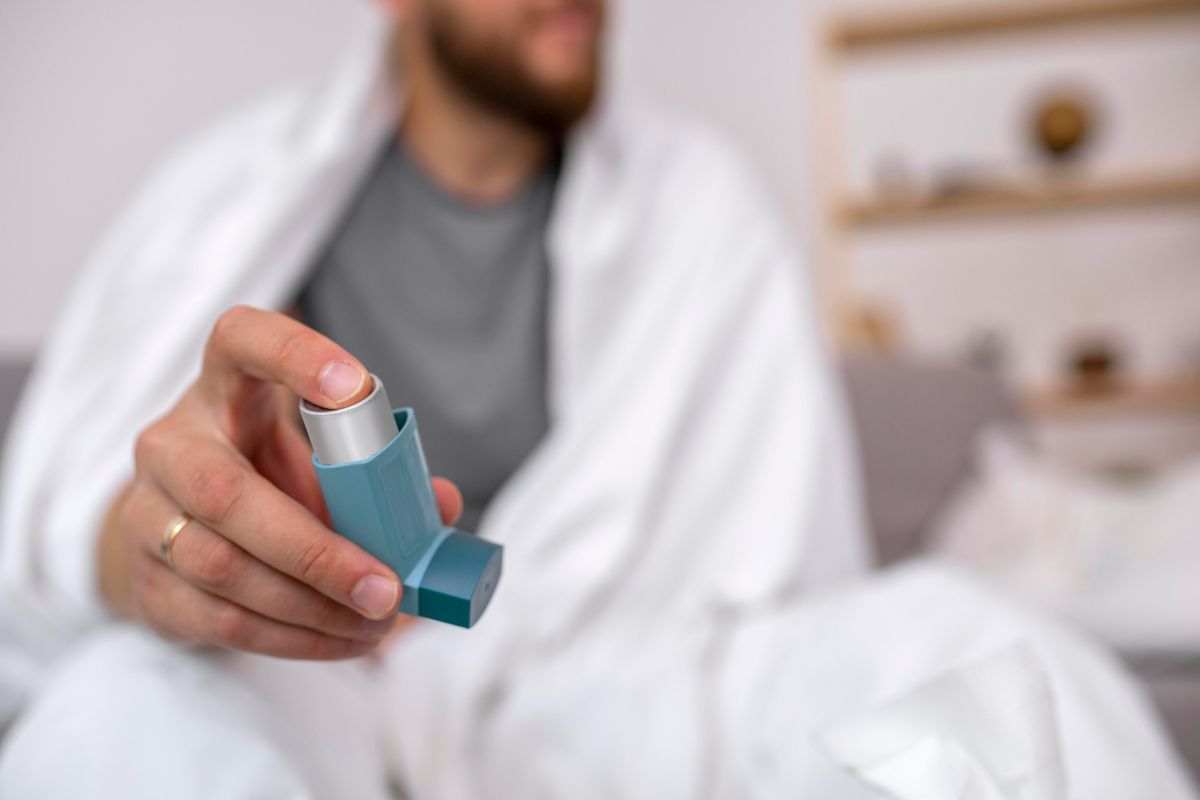Ketamine Nasal Spray medication is used mainly for the treatment of depression. It is typically administered in a medical setting under the supervision of a healthcare professional. According to prescription statistics, Ketamine Nasal Spray has increased recently, with millions of prescriptions written annually. It is important to note that this medication should only be used under the guidance of a healthcare professional, as it has the potential for misuse and can cause side effects.
In this blog
ToggleWhat Is Ketamine Nasal Spray?
Ketamine Nasal Spray is a prescription drug for treating depression and suicidal thoughts when other therapies have failed. It includes Ketamine, a drug that has long been used as an anesthetic. Ketamine is absorbed via the nose lining and immediately enters the circulation when delivered as a nasal spray, offering fast relief of depressive symptoms. It is crucial to remember, however, that Ketamine Nasal Spray should only be taken under the supervision of a healthcare expert because it has the potential for misuse and can produce adverse effects.
The substance used in Spravato, Ketamine, is an ‘enantiomer’ of Ketamine, which means it has the same chemical formula. It is, however, a mirror image’ of Ketamine. But, if Ketamine represents our right hand, Ketamine represents our left hand.
Esketamine, like Ketamine, is a general anesthetic with comparable applications. The brand name of Ketamine is Ketalar. Both medications are fast-acting in treating depression, with Esketamine being more assertive. Because of the risk of misuse, Esketamine is only provided in the United States through designated distribution centers rather than directly to patients.
Uses Of Ketamine Nasal Spray
Ketamine Nasal Spray is FDA-approved for treating depression and suicide ideation in people with severe depression. However, it is also used off-label to treat other psychiatric conditions such as PTSD, bipolar disorder, and anxiety disorders. Certain healthcare practitioners may also prescribe Ketamine for chronic pain management, migraines, and other off-label applications. It is vital to highlight that using Ketamine Nasal Spray off-label should only be done under the supervision of a healthcare practitioner familiar with the medicine.
Because Ketamine, like Ketamine, has the potential to distort perception in the first two hours following treatment, it must be delivered in a clinical environment. Outpatient therapy for Ketamine nasal spray is available.
Under the doctor’s supervision, you administer three doses of nasal spray five minutes apart. You will be kept at the clinic under the doctor’s care until any probable adverse effects have passed.
Esketamine must be used with a standard antidepressant. The goal is for Ketamine to offer immediate relief from depressive symptoms until the other medicine takes action.
How Does Ketamine Work?
When used to treat depression and certain mental health conditions, Ketamine is an anesthetic that affects the neurotransmitter systems in the brain. It blocks NMDA receptors in pain signaling, learning, memory, and mood regulation. Despite this initial blocking, it triggers glutamate release, strengthening existing neural connections and creating new ones. Ketamine also increases the production of brain-derived neurotrophic factor (BDNF), a protein that supports neuron growth and survival. These changes in the brain are believed to be the reason for Ketamine’s rapid antidepressant effects.
Some studies suggest that Ketamine may have anti-inflammatory properties beneficial in mood disorders. However, the Safety of Ketamine in the long term is still being researched.
Is Ketamine a Good Option For Treating Depression?
Ketamine has been discovered to be a viable therapy option for depression, particularly in individuals who have not reacted well to previous medications. Ketamine had immediate and substantial antidepressant benefits in individuals with treatment-resistant depression, according to a randomized controlled study published in JAMA Psychiatry in 2017. Another research published in 2020 in JAMA Network Open found that individuals who received intravenous Ketamine saw substantial improvements in depression symptoms compared to those who received a placebo.
It should be noted, however, that Ketamine is not currently FDA-approved for treating depression, and further study is required to assess its long-term efficacy and potential adverse effects. It should only be taken with the supervision of a healthcare expert familiar with the medicine.
Ketamine is offered to treat depression that has not responded to previous therapies. Oxford Health NHS Foundation Trust provides a private service for Ketamine therapy to individuals recommended by their GP or psychiatrist.
Over 40 minutes, a tiny amount of Ketamine is administered straight into your body. The initial therapy consists of three infusions, costing $215 for each injection. In the United Kingdom, Ketamine is categorized as a class B restricted substance, with penalties for possession, including a jail sentence and an unlimited fine. Ketamine’s use as a recreational drug has declined recently, with an estimated 94000 individuals using it in 2016. (DrugWise, 2016).
Related blog: How Long Does Ketamine Stay In Your System?
Possible Side Effects Of Ketamine
Get immediate medical attention if you experience hives, difficulty breathing, or swelling of your face, lips, tongue, or neck. Inform your caretakers if you have hallucinations or strange ideas after waking up from anesthesia. Ketamine has the potential to induce significant adverse effects.
Call your doctor right away if you have any of the following symptoms:
- a light-headed feeling, as if you’re about to pass out
- painful or difficult urination, increased urination
- loss of bladder control, blood in your urine
- jerky muscle movements that resemble convulsions.
- A slow heart rate, weak or shallow breathing
Ketamine’s common adverse effects include disorientation and a dream-like state.
Ketamine’s common adverse effects include:
- Perplexity
- The sensation is similar to that of a dream.
This is not an exhaustive list of possible adverse effects; more may arise. For medical advice on side effects, contact your doctor. You can get the FDA at 1-800-FDA-1088 to report negative effects.
Final Words From AzDrug
Many new studies are being done on the varied impacts of Ketamine right now. Benefits for mental health problems such as treatment-resistant depression, PTSD, and suicidal thoughts are included.
Ketamine may be unsafe if you have certain medical disorders, such as high blood pressure or heart difficulties, or specific mental health concerns, such as schizophrenia. Your doctor can inform you about the most recent research and medicinal applications for Ketamine, as well as the drug’s advantages and disadvantages.
Keep in mind that Ketamine has severe adverse effects that might be fatal. Ketamine should not be used without medical supervision. It is not legal to use Ketamine without a prescription, and illicit Ketamine may be laced with other chemicals that raise your risk of a severe response. Please inquire with your doctor for further information about Ketamine and its use.
What is ketamine nasal spray, and how does it work for mental health?
Ketamine Nasal Spray is a medication with a low dose of ketamine showing promise in treating depression and anxiety. It works by influencing certain neurotransmitters in the brain, promoting mental well-being.
How do I use Ketamine Nasal Spray, and what is the recommended dosage?
Using Ketamine Nasal Spray is simple-administrate it through the nose. The recommended dosage varies, and it's crucial to follow your healthcare provider's instructions for optimal results.
Ketamine Nasal Spray treats what problems, and who is a candidate?
Ketamine nasal spray can treat treatment-resistant depression. Suitable candidates typically include individuals who haven't responded well to other treatments.
How does ketamine nasal spray differ from other ketamine therapies in mental health?
Compared to other ketamine treatments like infusions, nasal sprays offer a more accessible and convenient option. Its unique delivery method and effectiveness make it stand out in the mental health treatment landscape.


